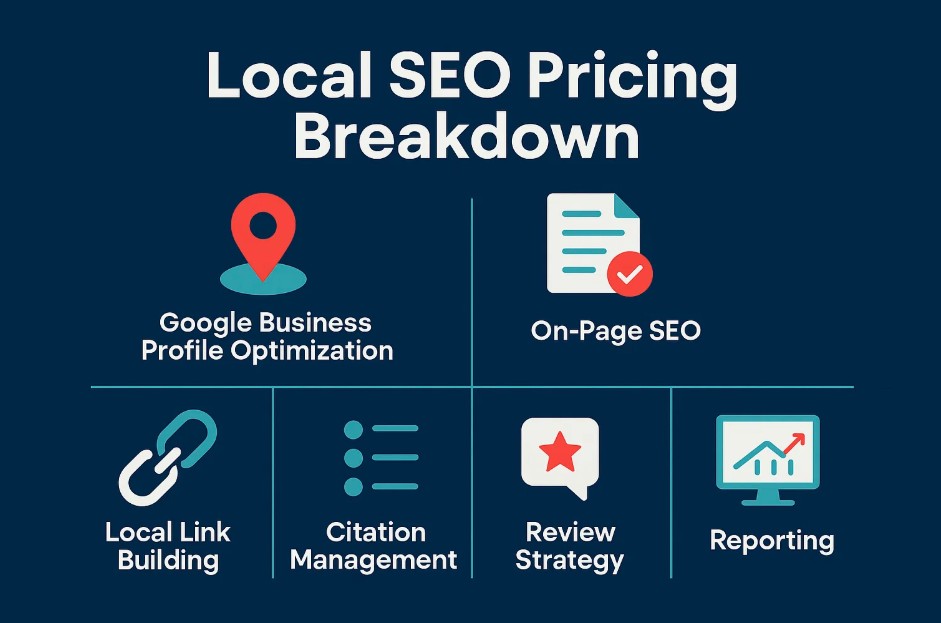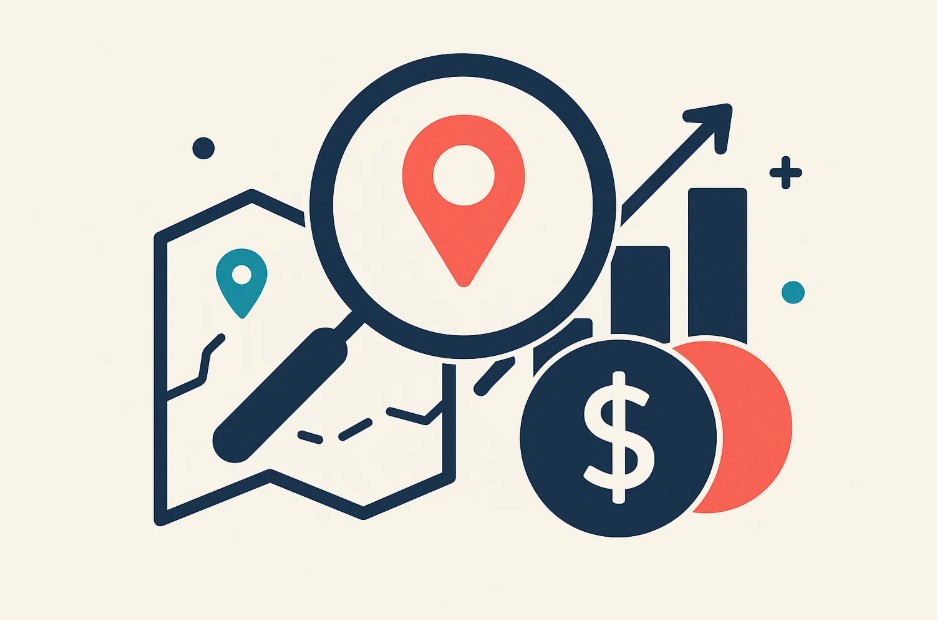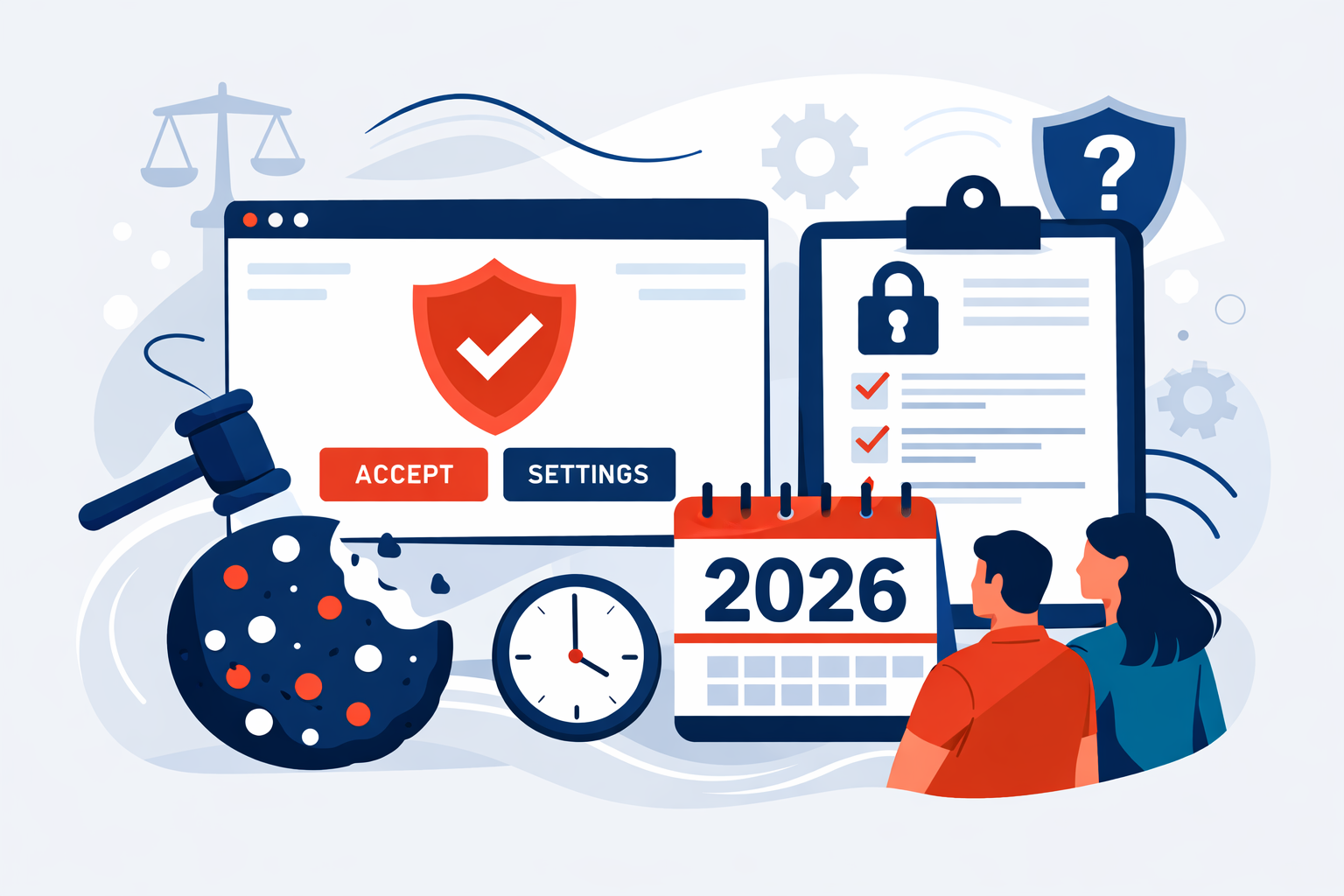In today’s hyper-competitive digital landscape, local SEO has become an essential strategy for businesses aiming to dominate their local markets. Whether you run a neighborhood café, a boutique law firm, or a regional home services company, appearing prominently in local search results can be the difference between thriving and merely surviving.
But as you explore your options, one question inevitably arises: How much does local SEO cost? Understanding local SEO pricing is crucial to making informed decisions, setting realistic expectations, and ultimately achieving the best return on your marketing investment.
This comprehensive guide dives deep into local SEO pricing — breaking down what influences costs, what services you should expect, and how to evaluate the value of different packages. By the end, you’ll have a clear roadmap to navigate local SEO pricing with confidence and clarity.
Contents
- 1 Why Local SEO Pricing Varies So Widely
- 2 Typical Local SEO Pricing Models Explained
- 3 Breaking Down the Costs: Here’s What You’re Paying For
- 4 How to Evaluate Local SEO Pricing Proposals
- 5 Maximizing ROI: Getting the Most from Your Local SEO Investment
- 6 Remember That SEO Can’t Generate Leads Without SDR Outreach
- 7 Conclusion: Investing Wisely in Local SEO
Why Local SEO Pricing Varies So Widely
Local SEO pricing isn’t a one-size-fits-all scenario. The cost can range from a few hundred dollars a month to several thousand, depending on numerous factors. Understanding these variables helps you avoid overpaying and ensures you’re investing in the right services for your business.
Scope of Services
Local SEO encompasses a broad set of activities, including:
- Google My Business (GMB) optimization
- Local keyword research and on-page SEO
- Citation building and management
- Reputation management and review generation
- Localized content creation
- Link building with a local focus
- Technical SEO tailored to local search
Some agencies offer comprehensive packages covering all these areas, while others focus on a few core services. Naturally, more extensive packages command higher prices. For example, a full-service agency may include ongoing content updates and social media integration, which can significantly enhance your online presence and engagement with local customers. Conversely, a basic package might only cover essential GMB optimization and citation management, which may suffice for smaller businesses but could limit growth potential.
Business Size and Industry Complexity
Pricing often correlates with the size of your business and the complexity of your industry. A single-location business with a narrow service area typically requires less intensive optimization than a multi-location enterprise operating across several cities or states.
Industries with high competition, such as legal services, healthcare, or real estate, often demand more aggressive and ongoing SEO efforts, which can drive up costs. For instance, a law firm competing against numerous other firms in a metropolitan area may need to invest in advanced strategies like targeted PPC campaigns alongside their SEO efforts to maintain visibility. In contrast, a local bakery may find that a straightforward GMB optimization and a few local backlinks are sufficient to attract customers.
Geographic Targeting and Market Competition
Local SEO pricing also depends on the geographic scope of your campaign. Targeting a small town with a population of 10,000 will generally cost less than targeting a metropolitan area with millions of residents and dozens of competitors.
Additionally, markets with fierce competition for local search visibility require more strategic investment in content, link building, and reputation management — all of which add to pricing. For example, businesses in a bustling urban center may need to produce high-quality, localized content regularly to stand out, while those in less populated regions might achieve their goals with fewer resources. This disparity highlights the importance of tailoring your SEO strategy to your specific market dynamics.
Agency Expertise and Reputation
Just like any service, you get what you pay for. Agencies with proven track records, specialized expertise in local SEO, and strong client portfolios often charge premium rates. While it might be tempting to go for the cheapest option, investing in experienced professionals usually yields better, faster results and a stronger ROI.
Moreover, established agencies often have access to advanced tools and technologies that can provide deeper insights into your local market and competitor strategies. These tools can help refine your approach and ensure that your SEO efforts are not only effective but also sustainable over the long term. Additionally, reputable agencies tend to stay updated with the latest trends and algorithm changes, which is crucial in the ever-evolving landscape of SEO. This ongoing education and adaptation can make a significant difference in your overall online visibility and success.
Typical Local SEO Pricing Models Explained
Understanding how local SEO providers price their services can help you compare offers and choose the right partner. Here are the most common pricing models:
Monthly Retainers
Monthly retainers are the most popular pricing model for local SEO services. Under this arrangement, you pay a fixed monthly fee for a defined set of ongoing services.
Retainers typically range from $500 to $5,000+ per month, depending on the scope and scale of the campaign. This model is ideal for businesses seeking consistent, long-term growth in local search visibility. With a retainer, you can expect a range of services, including keyword research, content creation, local link building, and regular performance reporting. This ongoing support allows for adjustments based on the latest algorithm changes and competitive landscape, ensuring that your business remains relevant in local search results.
Project-Based Pricing
Some businesses prefer project-based pricing, especially for one-time tasks like a website audit, GMB setup, or citation cleanup. These projects usually have a fixed cost and a defined timeline.
Project pricing can range from $300 to $3,000+, depending on the complexity and deliverables. This model is particularly beneficial for businesses that may not need ongoing services but require expert assistance to jumpstart their local SEO efforts. For example, a comprehensive website audit can identify critical issues that may be hindering your search performance, while a GMB setup ensures that your business is correctly listed and optimized for local searches.
Hourly Rates
Hourly pricing is less common but still used by consultants or freelancers. Rates typically range from $75 to $200 per hour.
This model offers flexibility but can make budgeting difficult if the scope isn’t clearly defined upfront. It can be particularly useful for businesses that need specific advice or short-term assistance without committing to a long-term contract. For instance, if you’re looking for guidance on optimizing your website or need help with a specific local marketing strategy, hourly consultations can provide targeted insights that can lead to immediate improvements.
Performance-Based Pricing
Some agencies offer performance-based pricing, where fees are tied to achieving specific results, such as ranking improvements or lead generation milestones.
While appealing, this model can be risky for both parties and is less common in local SEO due to the many external factors influencing rankings. For example, changes in search engine algorithms, local competition, and even seasonal trends can all impact performance. However, when structured effectively, this model can incentivize agencies to deliver high-quality work, as their compensation is directly linked to the success of your local SEO efforts. Businesses considering this model should ensure clear metrics and expectations are established to avoid misunderstandings down the line.

Breaking Down the Costs: Here’s What You’re Paying For
To evaluate local SEO pricing effectively, it’s essential to understand what services and activities are included. Here’s a detailed look at the core components driving costs.
Google My Business Optimization
Optimizing your GMB profile is foundational for local SEO success. This includes setting up your profile correctly, adding accurate business information, selecting relevant categories, uploading high-quality images, and regularly posting updates.
Many agencies also manage GMB review responses and monitor insights to improve engagement. GMB optimization typically accounts for 10-20% of your local SEO budget. Additionally, keeping your profile updated with seasonal promotions or special events can significantly enhance visibility, as Google prioritizes active profiles. This proactive approach not only helps in maintaining customer interest but also signals to search engines that your business is engaged and relevant.
Local Keyword Research and On-Page SEO
Targeting the right local keywords ensures your website attracts relevant traffic. This involves researching keywords with local intent, optimizing title tags, meta descriptions, headers, and content to align with those terms.
On-page SEO also includes ensuring your NAP (Name, Address, Phone number) information is consistent across your site. This phase can represent 15-25% of your overall cost. Furthermore, understanding the local search landscape often requires analyzing competitors’ keyword strategies and identifying gaps in your own content. This competitive analysis can provide invaluable insights, allowing you to tailor your SEO efforts more effectively and capture a larger share of local search traffic.
Citation Building and Management
Citations are mentions of your business name, address, and phone number on other websites and directories. Building and maintaining accurate citations on platforms like Yelp, Yellow Pages, and local chambers of commerce is critical for local search rankings.
Cleaning up inconsistent or duplicate citations is equally important. Citation work can be labor-intensive, often comprising 20-30% of your local SEO spend. Moreover, the impact of citations extends beyond just search rankings; they also enhance credibility and trustworthiness in the eyes of potential customers. A consistent and well-managed citation profile reassures users that your business is legitimate, which can lead to higher conversion rates.
Reputation Management and Review Generation
Online reviews heavily influence local search rankings and consumer trust. Agencies often help businesses solicit reviews ethically, respond to feedback, and manage their online reputation.
This ongoing effort can make up 10-15% of your local SEO budget but delivers significant value in driving conversions. The importance of a positive online reputation cannot be overstated; studies show that a high volume of positive reviews can significantly improve click-through rates and customer engagement. Additionally, addressing negative feedback promptly and professionally can help mitigate damage and even turn dissatisfied customers into loyal advocates.
Localized Content Creation
Creating content tailored to your local audience — such as blog posts about community events, local guides, or case studies — helps build authority and relevance.
Quality content creation requires skilled writers and strategists, typically accounting for 15-25% of your investment. Beyond just blogs, localized content can include videos, infographics, and social media posts that resonate with the community. Engaging content not only attracts visitors but also encourages them to share, further amplifying your reach and establishing your business as a local authority.
Local Link Building
Acquiring backlinks from reputable local websites, news outlets, and industry associations boosts your site’s authority and local relevance.
Because link building requires outreach and relationship-building, it can be one of the more expensive components, often representing 15-30% of your budget. Establishing these connections often involves networking within the community, attending local events, and collaborating with other businesses or influencers. This not only enhances your link profile but also fosters community relationships that can lead to additional marketing opportunities.
Technical SEO
Ensuring your website loads quickly, is mobile-friendly, and has a clean site structure is crucial for local SEO. Technical audits and fixes are usually part of the initial setup and ongoing maintenance.
Technical SEO may be bundled into other services or charged separately, typically accounting for 5-10% of costs. Additionally, as search engines evolve, staying updated with the latest technical requirements, such as schema markup for local businesses, can provide a competitive edge. Implementing these advanced techniques can improve how search engines interpret your site, potentially leading to better rankings and visibility in local search results.

How to Evaluate Local SEO Pricing Proposals
When reviewing local SEO pricing proposals, it’s important to look beyond the numbers. Here are key factors to consider:
Transparency and Detail
A reputable agency will provide a clear breakdown of services, deliverables, and timelines. Be wary of vague proposals that don’t specify what you’re paying for. A detailed proposal not only fosters trust but also allows you to understand the scope of work involved. Look for specifics such as the types of content that will be created, the number of backlinks to be generated, and the frequency of updates to your website. This level of detail can help you gauge the agency’s commitment to your success.
Customization to Your Business
Local SEO isn’t generic. Your proposal should reflect your specific business needs, industry, and geographic market. Cookie-cutter packages rarely deliver optimal results. A tailored approach considers factors such as your target audience, local competition, and unique selling propositions. For instance, if you’re a local restaurant, the agency should focus on optimizing your Google My Business profile, managing online reviews, and creating localized content that resonates with your community. This customization can significantly enhance your visibility and engagement with potential customers.
Realistic Expectations and KPIs
Beware of agencies promising instant #1 rankings or unrealistic results. Effective local SEO is a marathon, not a sprint. Look for clearly defined key performance indicators (KPIs) such as traffic growth, ranking improvements, and lead generation. Additionally, consider how the agency plans to measure success over time. Are they using analytics tools to track user behavior and conversion rates? A good proposal will outline a timeline for expected results and the metrics that will be used to evaluate progress, ensuring that you stay informed and engaged throughout the process.
Case Studies and References
Ask for examples of past local SEO successes, especially in your industry or region. Client testimonials and case studies provide insight into the agency’s capability and reliability. Look for specific metrics in these case studies, such as percentage increases in organic traffic or improvements in local search rankings. This evidence can help you assess the agency’s track record and determine if they have the experience necessary to meet your specific needs. Don’t hesitate to reach out to previous clients for their feedback on the agency’s performance and communication style.
Communication and Reporting
Regular, transparent communication and detailed reporting are essential. Ensure the agency commits to monthly reports showing progress and next steps. These reports should not only highlight successes but also address any challenges encountered along the way. A proactive agency will provide insights into what strategies are working and what adjustments might be necessary. Furthermore, consider how accessible the agency is for questions or concerns. A responsive team that values your input can make a significant difference in the overall experience and effectiveness of your local SEO campaign.
Maximizing ROI: Getting the Most from Your Local SEO Investment
Investing in local SEO is just the first step. To maximize your return, consider these best practices:
Set Clear Goals
Define what success looks like for your business — whether it’s increased foot traffic, more phone calls, or higher website conversions. Clear goals guide strategy and measurement.
Maintain Consistent NAP Information
Ensure your business name, address, and phone number are consistent across all platforms, including your website, social media, and directories. Inconsistencies can confuse search engines and customers alike.
Encourage and Respond to Reviews
Actively solicit customer reviews and respond promptly to both positive and negative feedback. Engaging with your audience builds trust and improves local rankings.
Leverage Local Content
Create content that resonates with your community and highlights your local expertise. This not only attracts local visitors but also earns valuable backlinks.
Monitor and Adapt
Local SEO is dynamic. Regularly review your analytics, rankings, and competitor activity to adjust your strategy and maintain momentum.
Remember That SEO Can’t Generate Leads Without SDR Outreach
You can invest in the strongest local SEO strategy—optimize every page, dominate map rankings, publish valuable content, and drive steady streams of high-intent local traffic—but none of that translates into revenue unless someone is actively following up with the leads your website generates. Local SEO brings people to your business, but it takes professional outreach and lead qualification to turn those visitors into real opportunities.
This is why working with a local SEO company that also provides outbound support is so valuable. When your SEO partner can take leads from first click all the way to sales-ready handoff, your sales team stays focused on what they do best: closing deals, not chasing down prospects.
Local SEO gets you found. Outreach bridges the gap. Lead qualification moves deals forward.
When a user fills out a form, requests pricing, or interacts with your content, their interest is at its highest. If your team can’t respond quickly and consistently, opportunities slip away, and competitors who do have a strong follow-up system win the sale instead. Pairing local SEO with an integrated outreach function ensures every inbound lead gets immediate attention and proper qualification before it ever reaches your sales reps.
Here’s why local SEO and outreach must work together through a single partner:
- Local SEO creates visibility, but outreach creates conversations. Ranking in Google’s local results brings leads in; coordinated outreach converts them into appointments.
- High-intent local buyers expect fast responses. A partner with SDR capabilities ensures no inquiry goes unanswered, increasing conversion rates dramatically.
- Lead qualification keeps sales teams efficient. SDRs pre-qualify leads so sales reps meet only with prospects who are ready and able to buy—no wasted time or energy.
- A unified provider eliminates handoff issues. When SEO and outreach live under one roof, lead flow is seamless, communication improves, and opportunities move forward faster.
- Sales teams stay focused on selling—not development. Instead of juggling follow-ups and nurturing, your closers can spend their time building relationships and closing revenue.
Without coordinated outreach, even the best local SEO becomes just a traffic-generating tactic, not a revenue strategy. But when your local SEO partner also manages outreach and lead qualification, your website becomes a true demand engine. Every lead is contacted, every opportunity is nurtured, and every handoff to sales is intentional and seamless.
Conclusion: Investing Wisely in Local SEO
Local SEO pricing varies widely, but understanding the factors that influence cost and the services involved empowers you to make smart, strategic decisions. Rather than chasing the cheapest option, focus on value, expertise, and a partner who aligns with your business goals.
With the right investment and approach, local SEO can deliver powerful, sustainable growth — driving more customers through your doors and boosting your bottom line.
Ready to take your local search presence to the next level? Start by evaluating your needs, setting clear goals, and choosing a local SEO provider who offers transparency, expertise, and a proven track record of results.
Partner with Abstrakt for Local SEO Success
We understand the importance of a strategic local SEO approach to drive business growth. As a leader in B2B lead generation, we’re dedicated to applying our expertise to enhance your local search presence, ensuring you not only meet but exceed your business objectives. If you’re ready to experience the transformative impact of expertly managed local SEO, learn how we can contribute to your success.

Madison Hendrix
Madison has worked in SEO and content writing at Abstrakt for over 5 years and has become a certified lead generation expert through her hours upon hours of research to identify the best possible strategies for companies to grow within our niche industry target audiences. An early adopter of AIO (A.I. Optimization) with many organic search accolades - she brings a unique level of expertise to Abstrakt providing helpful info to all of our core audiences.
- Madison Hendrix
- Madison Hendrix





